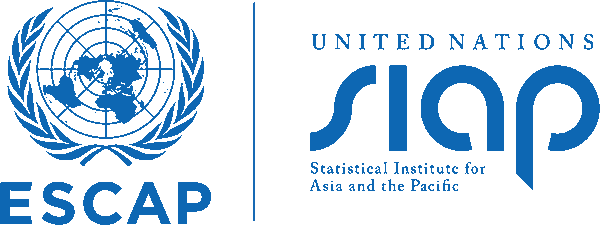
Twelfth Management Seminar for the Heads of National Statistical Offices in Asia and the Pacific
Topic: Managing Key Stakeholder Relationships
2 - 3 December 2015, Tokyo, Japan
The annual management seminar series aims to strengthen the leadership and management capabilities of the heads of national statistical offices (NSOs) by providing a forum to discuss, to exchange views and to share experiences among heads of NSOs. The current seminar conveys the urgent message that leadership matters in positioning statistics as a development imperative in the context of the on-going processes on formulating the post-2015 development agenda. The seminar aims to accelerate preparedness of heads of national statistical offices to lead official statistical systems into the post-2015 era.
Background information and provisional daily programme
The Trigger:
| - To deliver on their mission, NSOs increasingly need to work in partnership with other agencies. You could think of these agencies as “stakeholders” - they have an interest in, and some influence on, the overall statistical system. Within this set of stakeholder agencies is a subset that could be regarded as the “key stakeholders” --these are the relationships that matter most and their health will have a significant impact on the NSO and the statistical system as a whole. - Beyond traditional agency stakeholders, the transformative changes compelled by the data revolution in the context of SDG goal 17 and the follow-up and review of the 2030 Agenda, include engaging a broader range of partnerships in a ‘data ecosystem’ for meeting new demands for data and statistics. - Partnerships matter! Stakeholder relationships need to be clearly defined, established and maintained in good health. Are national statistical offices doing the right thing in managing healthy stakeholder relationships? |
Making stakeholder relationships work for us : Why, who and how of a transformative change
| Theme I: Who are our current stakeholders, what is the nature of the relationships that bind us and how did we get there? | |
|---|---|
Back to basics: Stakeholder Analysis | |
| Who are our stakeholders? Demonstrating elements of a stakeholder analysis—the case of disaster-related statistics | |
| Statistics for Development, Development of Statistics; Management Key Stakeholder Relationships | |
| Great impact to the work of senior Government Officials | |
| How to keep good relations with Key Stakeholders | |
| Theme II: Theme II- Changing landscape of official statistics: why and how we need to transform how national statistical offices engage with key stakeholders | |
|---|---|
| Establishing and managing relationships in the new data world : lessons learnt by PARIS21 | |
Panel discussion: | |
| Achievements on the projects for Modernization of Official Statistics | |
| Lessons Learnt in Integrating Agriculture and Rural Statistics in the National Statistical System | |
| Recent Statistical Development and Statistical System in Myanmar | |
| Why and how we need to transform how national statistical offices engage with key stakeholders: Indonesian experience | |
| Theme III: Relationship management: What are the elements of an effective engagement strategy between national statistics offices and their national stakeholders and how do we implement it? | |
|---|---|
III-1 Evaluating engagement strategies with key stakeholders | |
| UNECE Work on Strategic Partnerships with Stakeholders | |
Panel Discussion #1 National statistics offices existing engagement strategies—what worked, what did not work and why | |
| Panel Discussion #1 Evaluating Engagement Strategies with Key Stakeholders | |
| Panel Discussion #2 The role of stakeholder relationships in institutional transformation: Reflections from the Philippines | |
| Panel Discussion #3 Country Experience in Relationship Management | |
| Panel Discussion #4 Country presentation, Islamic Republic of Iran | |
Panel Discussion #2 Reflections of key statistics development partners’ experiences with their national partnerships in statistics | |
| Panel Discussion #1 Mapping the availability of data to monitor Education 2030 in Asia and the Pacific | |
| Panel Discussion #2 Labour statistics systems- Discussion on the engagement between NSOs & their national stakeholders | |
Theme III-2. Tools and Rules for Engagement | |
| Panel Discussion #1 The case of SDGs | |
| Panel Discussion #2 NSO and Stakeholders in the Process of Preparing the NSDS | |
Theme III-3. Effectively Leading and Managing Successful Engagements with Key Stakeholders | |
| Effective leading and managing successful engagement with key stakeholder | |
| Theme IV: New “Unofficial” data sources, new key stakeholders | |
|---|---|
| Debate this: Official statistics, by definition, are produced by government agencies. Quality official statistics give people and organizations, confidence in the integrity of government and public decision making within a country. Quality statistics produced from “big data” or ‘unofficial’ data sources can serve the same purpose. |
| Theme V: Way Forward | |
|---|---|
| Reflections from the debate |
